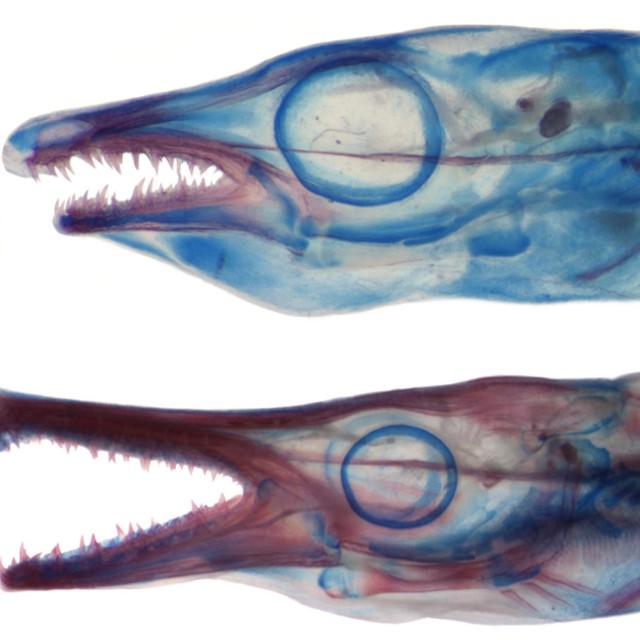The Department of Organismal Biology and Anatomy's (OBA) graduate program in Integrative Biology trains students to pose strongly interdisciplinary research questions across fields in biology and among levels of biological organization. Faculty in our department engage a wide range of topics in biology in the broad contexts of understanding how animals develop, evolve, and function. Please explore the faculty pages for details on the full breadth of research interests represented in the department, as well as the research page.
OBA's graduate student curriculum permits students to develop their own research focus and Ph.D. project while also building a strong foundation in integrative biology under the active mentorship of our faculty. Students in the Integrative Biology program take a variety of core and elective courses in which they are introduced to both faculty research and approaches to integrative research in organismal biology. Our students have the opportunity to utilize the diversity of expertise at the University of Chicago and affiliated institutions including the Field Museum of Natural History, Argonne National Laboratory, and Woods Hole Marine Biological Laboratory (MBL), and to take courses across the sciences and beyond. Beyond our thriving departmental academic community, there are numerous weekly seminar series exemplifying different aspects of the biological sciences (for example, evolution, ecology, behavior, integrative biology, development, genetics, molecular biology, neurobiology, and computational neuroscience) that bring in researchers from around the world.
Integrative Neuromechanics
Neuromechanics is an important area of growth in neuroscience. The field examines the combined function of the brain in concert with the biomechanics of body movement and sensorimotor integration. Neuromechanics research has implications for both basic and applied work related to a national need in neuroscience including: (1) development of neuroprosthetics to restore abilities to amputees, (2) development of biologically-inspired designs for a range of engineering applications, and (3) increased understanding of how organisms function in changing environments, a key to understanding potential impacts of climate change on behavior, animal populations, and species survival.
This is a particularly exciting time to be an integrative biologist. Recent advances in research tools and technology in molecular biology, neurobiology, genetics, scientific visualization, and computational biology are providing new opportunities to approach biological questions with fresh perspectives and explore new directions through interdisciplinary research.

